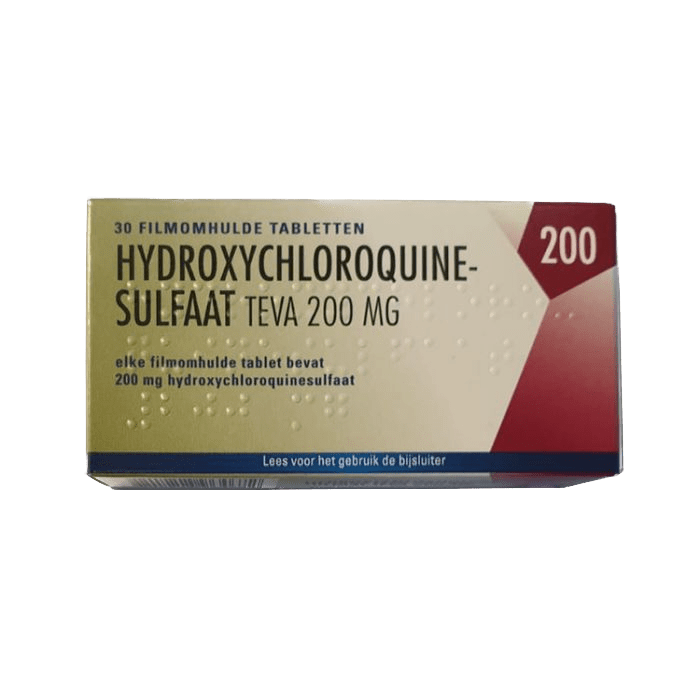Hydroxychloroquine
Buy Hydroxychloroquine EU | What is Hydroxychloroquine?
Hydroxychloroquine, also known by its brand name Plaquenil, is a medication used to treat malaria and certain autoimmune conditions such as lupus and rheumatoid arthritis. It belongs to a class of drugs called disease-modifying antirheumatic drugs (DMARDs), which work by suppressing the immune system and reducing inflammation. Hydroxychloroquine is available in tablet form and is usually taken once or twice a day, depending on the specific condition being treated. As a treatment for malaria, hydroxychloroquine is effective in preventing and treating the infection caused by the Plasmodium parasite, which is transmitted through mosquito bites. In the context of autoimmune conditions, such as lupus and rheumatoid arthritis, hydroxychloroquine is employed to help manage symptoms and improve overall disease outcomes. Its disease-modifying properties contribute to the regulation of the immune response and reduction of inflammation associated with these autoimmune disorders. Hydroxychloroquine is typically administered in tablet form and is generally taken once or twice a day, the frequency depending on the specific autoimmune condition being treated. As with any medication, it is crucial for individuals to strictly adhere to their healthcare provider’s prescribed dosage and instructions. Regular follow-ups with healthcare professionals are recommended to monitor the effectiveness of the treatment and address any potential side effects or concerns.How does Hydroxychloroquine work?
Hydroxychloroquine works by inhibiting the production of certain chemicals in the body that contribute to inflammation. It does this by inhibiting the activity of an enzyme called cytochrome P450, which is involved in the synthesis of certain inflammatory mediators. By inhibiting this enzyme, hydroxychloroquine can reduce inflammation and improve symptoms in individuals with autoimmune conditions. This targeted action on inflammatory pathways is integral to the therapeutic effect of hydroxychloroquine in managing autoimmune conditions such as lupus and rheumatoid arthritis. The modulation of the immune response helps alleviate symptoms and contributes to the overall management of these chronic conditions. It is important for individuals prescribed hydroxychloroquine to adhere to their healthcare provider’s instructions regarding dosage and usage. Regular communication with healthcare professionals is recommended to monitor the response to treatment, address any concerns, and ensure optimal management of autoimmune conditions with hydroxychloroquine therapy.How Do I Take Hydroxychloroquine?
Hydroxychloroquine is usually taken by mouth, either once or twice a day. It is important to follow your healthcare provider’s instructions for taking this medication. The tablets should be taken with food to help reduce the risk of stomach upset. It is also important to drink plenty of fluids while taking hydroxychloroquine, as it can cause dehydration. If you miss a dose, take it as soon as you remember, unless it is almost time for your next dose. In that case, skip the missed dose and take your next dose at the regular time. Do not take two doses of hydroxychloroquine at the same time. To mitigate the risk of stomach upset, it is advisable to take hydroxychloroquine with food. Additionally, staying well-hydrated is important while using hydroxychloroquine, as this medication may contribute to dehydration. If a dose is missed, it is recommended to take it as soon as you remember, unless it is nearing the time for the next scheduled dose. If the latter is the case, it is advisable to skip the missed dose and resume the regular dosing schedule. Doubling up on doses to make up for a missed one is not recommended. Patients should maintain open communication with their healthcare providers regarding any questions or concerns related to hydroxychloroquine. Regular follow-up appointments can help ensure the medication’s effectiveness, monitor for potential side effects, and make any necessary adjustments to the treatment plan.What are the side effects of Hydroxychloroquine?
Like all medications, hydroxychloroquine can cause side effects. Common side effects include nausea, stomach pain, diarrhea, and headache. Other side effects that have been reported with hydroxychloroquine include dizziness, loss of appetite, skin rash, and changes in skin color. In rare cases, hydroxychloroquine can cause more serious side effects such as vision changes, difficulty breathing, and muscle weakness. If you experience any of these side effects, it is important to contact your healthcare provider right away. It is also important to inform your healthcare provider if you have any pre-existing medical conditions, as hydroxychloroquine may not be suitable for everyone. While the majority of side effects are typically mild and transient, individuals need to be aware of potentially serious side effects that can occur in rare cases. These may include vision changes, difficulty breathing, and muscle weakness. If any of these more serious side effects are experienced, seeking prompt medical attention is crucial. It is imperative to communicate openly with your healthcare provider about any side effects or concerns you may have while taking hydroxychloroquine. Additionally, individuals should disclose their full medical history to their healthcare provider before starting hydroxychloroquine, as pre-existing conditions may influence the suitability of this medication. This collaborative approach helps healthcare providers make informed decisions about the ongoing use of hydroxychloroquine and ensures the safety and well-being of the individual.Reviews
There are no reviews yet.
Only logged in customers who have purchased this product may leave a review.

Fast & Discreet Delivery
Plain packaging with no medical stamps or marks

Quick & Easy
No appointment or long waiting times

Confidential
Your information stays with us and private payment

EU Medications
Dispensed by registered international pharmacies



Reviews
There are no reviews yet.